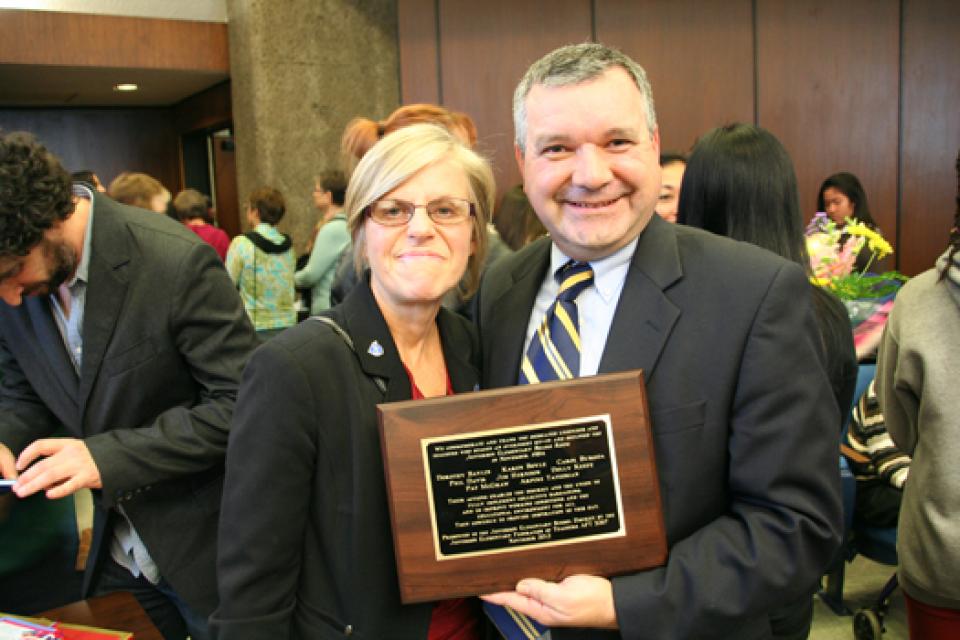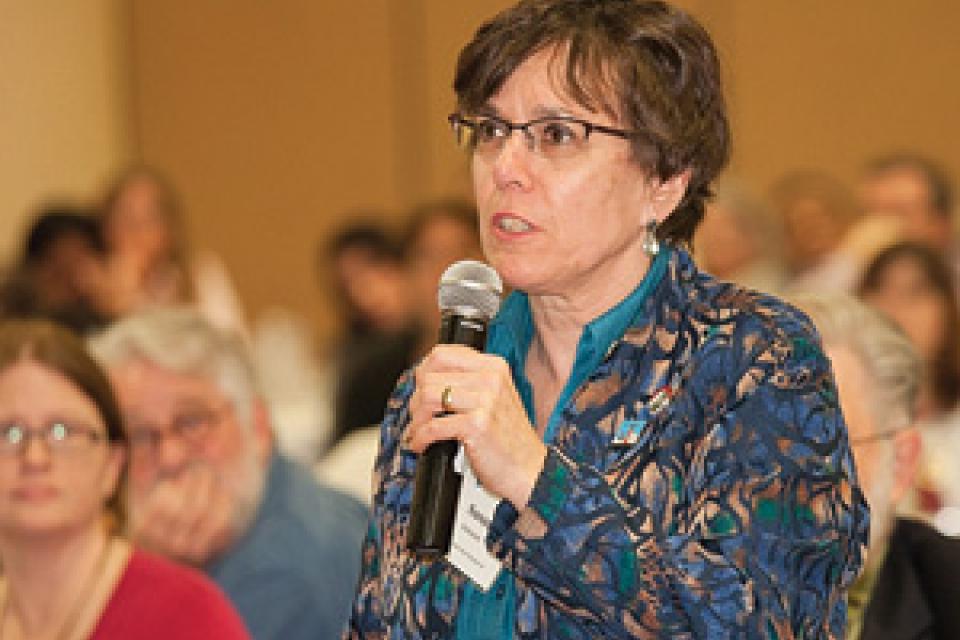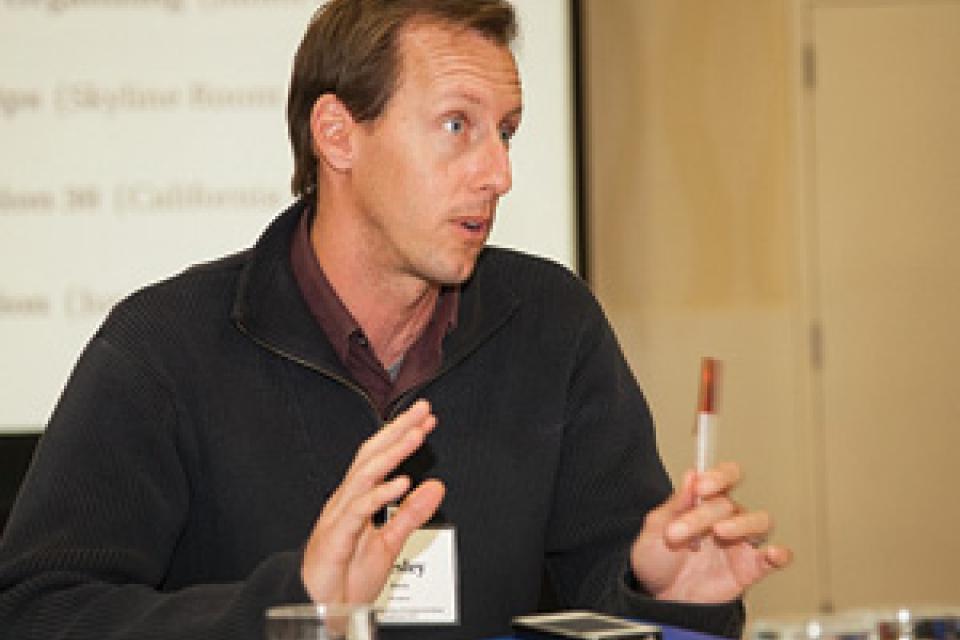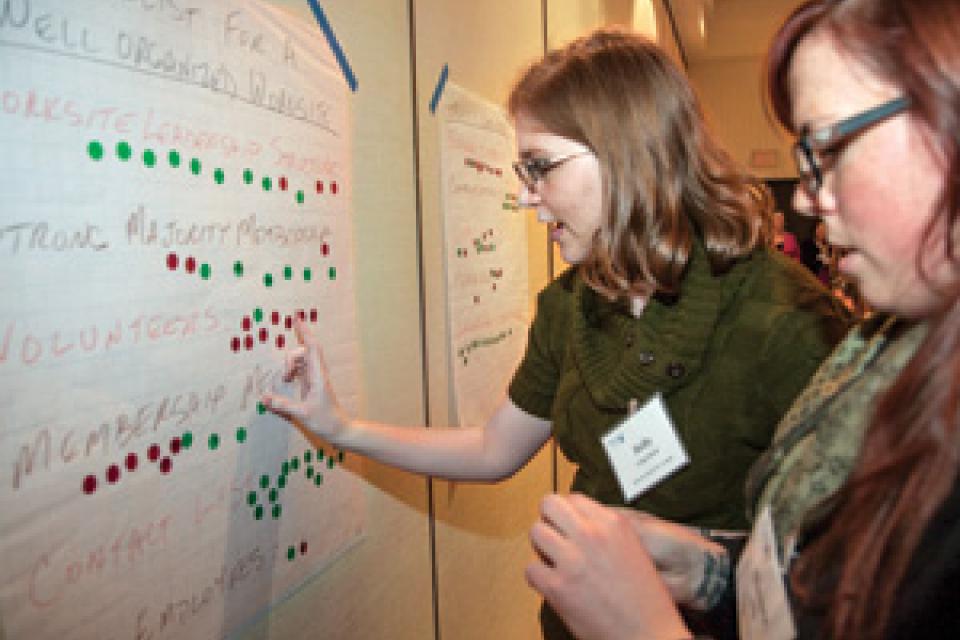Newsroom
Adult educators build awareness, support to save schools
United street action and online communities making a difference
Adult education has been on the ropes, yet it continues to come back swinging to defend programs that are vital to many California communities.
Massive Open Online Classes threaten quality of education
Low-cost educational alternative likely to widen digital divide
MASSIVE OPEN ONLINE CLASSES have been hailed by officials at the companies that run them (the three biggest are edX, Udacity and Coursera) as a way to provide access to classes at elite universities to everyone, but critics say that MOOCs — free online course with potentially thousands of students, many of them outside the United States — would undermine education quality, increase the digital divide and cost teachers their jobs.
Federal cuts threaten cooking and gardening classes
Berkeley community rallies to save famous kids’ grow-it-yourself program
Facing a massive loss of federal funds, Berkeley Unified officials may yank an innovative gardening and cooking program up by the roots. The slash and burn tactics are drawing widespread community fire.
For about 15 years, the U.S. Dept. of Agriculture has taught low-income families about nutrition through school programs like the Network for a Healthy California. Congress, however, has revised its funding formula and California, which used to receive nearly a third of all USDA money, will lose about 40 percent of its grant. The funding for direct-to-kids programs like the NHC will be shifted to local health agencies to run publicity campaigns.
CFT files complaint taking community college accrediting agency to task
April 30, 2013, Novato—Today the CFT and its City College of San Francisco affiliate, AFT Local 2121, filed a complaint or “third party comment” with the Accrediting Commission for Community and Junior Colleges (ACCJC), and sent a copy to the United States Department of Education (USDOE).
Daly City elementary schools honor collective bargaining
Local 3267 commemorates significant union event
CFT Vice President Melinda Dart, president of the Jefferson Elementary Federation of Teachers, AFT Local 3267, presents a plaque to district Superintendent Bernardo Vidales. The plaque commemorates the occasion when leaders of the AFT local occupied the board room, a key moment in the history of collective bargaining in the Daly City district.
New CFT White Paper calls on three experts to describe what makes quality education
A new CFT White Paper summarizes the union’s public support for recommendations to build quality education that are based on sound research and best practices as recommended by three educational experts. The experts in the paper titled “What makes quality public education? Ask the experts. That’s what the education union did,” are widely published and have presented to CFT members and countless other progressive organizations.
Members work to end high-stakes test for second graders
CFT continues efforts to abolish STAR test for state’s youngest learners
Stephanie Bernstein says her second graders are typical seven-year-olds: “They need to get up and move about every 15 minutes.”
CFT launches member discussion of “quality public education”
Union explores partnership of community and educators to launch quality public education campaign
Making schools community hubs is key to the union’s campaign for quality public education, CFT President Joshua Pechthalt told participants at the Leadership Conference. Connections with community members comprise the CFT’s greatest strength and he encouraged educators to mine those ties.
Seattle teachers ratchet up movement against high-stakes tests
Garfield High School teachers boycott administration of state-mandated assessment
Seattle’s Garfield High School teachers made the momentous decision in January to refuse to administer the state-mandated Measures of Academic Progress (MAP) test — and it began with a discussion in the teachers’ lounge.
CFT Convention delegates elect leadership slate
Speakers laud union’s accomplishments and inspire future campaigns
Midway through this year’s state convention, CFT President Josh Pechthalt and Secretary Treasurer Jeff Freitas ran unopposed as part of a slate called QES-Quality Education Slate and the entire slate was elected by acclamation.
Locals take bold steps to build power in tough times
Faculty-classified alliance, improved communications empower members
Two Southern California classified locals
have recently seen how unity pays off.
“Our members understand that the more of us who go in, the
stronger voice we have,” says Debbi Claypool, president of the
Palomar Council of Classified Employees.
The northern San Diego County local represents about 400 classified employees at Palomar College, including maintenance, clerical, police, payroll and janitorial, according to Claypool, a business services technician.
CFT supports community college funding solution
Bill gives breathing space to colleges under accreditation sanction
CFT President Joshua Pechthalt speaks at a rally in front of San Francisco City Hall with Assemblymember Paul Fong, D-San Jose, who introduced AB 1199. The much-needed legislation will provide community colleges under accreditation sanction breathing room.








